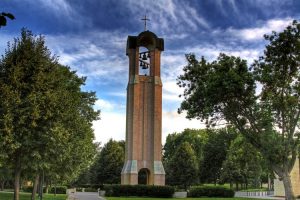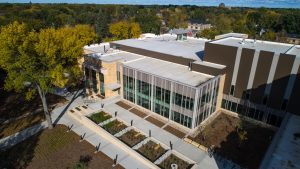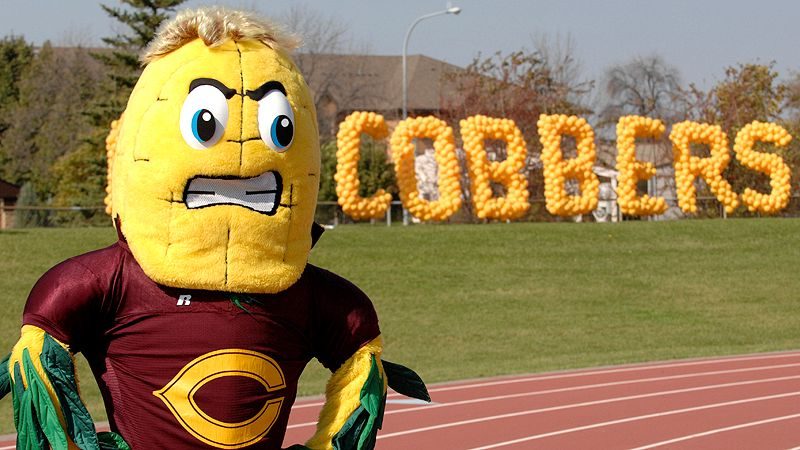Whenever I tell people that I am in a class this semester called Neurochemistry, I get very startled responses such as “wow that sounds so intense” or “sounds difficult, no thank you,” yet when I first declared my major in Neuroscience I was SO EXCITED to have the opportunity to take this course. Like seriously since my freshman year I’ve wanted to take it. Now the reactions I got from people are normally what happens when I say that I’m in a science class, and yet I couldn’t imagine myself doing anything other than science.
Neurochemistry is considered a “capstone” course at Concordia College, and every student must take a capstone in order to graduate (now called PEAK, or Pivotal Experience in Applied Knowledge), but more on that later. I cannot even begin to explain how much I LOVED this class, but I’ll attempt to do just that in the rest of this blog.
While the class is aimed mainly for Neuroscience or Chemistry majors, many of us come into the course with a wide range of knowledge about neurons, neurotransmission, and the brain in general. We all have different backgrounds and strengths that can be extremely helpful while going through the course. In this class, we were teachers, listeners, and most importantly, learners. At the beginning of the semester we would spend time orienting ourselves to the major aspects of neurotransmission and the signaling pathways that would be beneficial when we started reading papers. After that, we would spend an entire week on ONE paper. Let me repeat that. THREE class days for ONE paper. It was amazing. It actually made me want to read the papers and discuss what the topic was for the week versus reading one or two articles for one class period, like some of my other classes have done in the past.

For each paper, we would come to class on Monday having read the paper, taken good notes and summarized each section, tried to wrap our brains around what exactly was going wrong with, for example, Autism, AD, or Concussions, and (my favorite) our QUESTIONS. Literally anything we didn’t understand or anything we wanted to know more about in order to put the story together. Dr. Mach created a learning environment in which it was okay to not know everything and be able to ask in-depth questions that no other science class did. I didn’t have to memorize every possible detail about every signaling pathway or function of the brain in a certain disorder for an exam, but rather was able to synthesize information and come up with hypotheses to the problem and guess what: if we weren’t 100% spot on to the “correct” answer, that was OKAY. This is what pushed me to be a better scientist. On Wednesdays, each student would come to class having researched a topic that we would discuss on the previous Monday class period (i.e., pathways involved, regions of the brain, more information about the disease, basically anything we wanted/needed to know more about) and we would teach each other about our topic in 2-3 minutes. At this point in the week, more and more pieces to the puzzle would come together about the topic for the week and everything would begin to make more sense from the first time reading through the paper. On Fridays, the class would split into two groups and we would just discuss anything we wanted related to the topic, given some direction from whoever was the discussion leader for the week. Fridays were especially fun because we would be able to talk about controversial topics and again, this is where student’s backgrounds in various disciplines was most helpful. As a celebration, we even got to go to Village Inn on the last day of class-YUM.
Concordia strives itself on 5 “Goals for Liberal Learning” as the following:
- Instill a love for learning
- Develop foundational skills and transferable intellectual capacities
- Develop an understanding of disciplinary, interdisciplinary and intercultural perspectives and their connections
- Cultivate an examined cultural, ethical, physical and spiritual self-understanding
- Encourage responsible participation in the world
Our capstone course, in addition to the entire four years we have spent at Concordia, are supposed to be dedicated to these goals and values. While Neurochem wasn’t the most challenging course that I have taken in my time on campus, I strongly believe it has more than fulfilled these requirements. As one of my strengths is being a learner, the first goal for liberal learning fits very well into who I am and the experiences I have had at Concordia. Another big component of the course is the Community Action Project, where we were put into a group with peers from the class and a Social Work class to address an issue in the community and come up with an action plan/intervention to successfully address that need. This was a great collaborative experience to be a part of, as well and really addressed many of the goals for liberal learning, even if not in a direct manner.
I mentioned above the new “version” of capstones at Concordia being called PEAKs. For more information on a PEAK, follow this link: https://www.concordiacollege.edu/admission/commitment/peak/
While the name of capstone will be changing, and students will now need two PEAKs in order to graduate, this course will still exist and might just be tweaked slightly for the requirements needed.

I could honestly go on and on and on (and on) about how great this course was and how much it has impacted my education and experiences at Concordia College. I learned SO MUCH information, not just on the science behind various diseases, but also how to be a better scientist and valuable insights that I can take with me as I pursue a degree in Medicine in the future. I would highly recommend this course-Dr. Mach is phenomenal!
Now time for my last semester of undergrad to start in January…#rollcobbs
